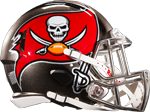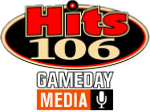1980 Tampa Bay Buccaneers Season 5 Brief
The 1980 Tampa Bay Buccaneers season began with great optimism in the wake of their surprise NFC championship appearance of the previous season. After scoring a playoff win in only their fourth year, the Buccaneers became the model franchise upon which the NBA expansion Dallas Mavericks adopted their building plan. A 3–1 preseason and victories in their first two regular-season games, including an NFC championship rematch against the Los Angeles Rams in the Buccaneers' Monday Night Football debut, gave an early impression of the team as a force that had arrived. However, the optimism dissipated as the offense underachieved, while opponents seemed to have solved the Buccaneers' 3–4 defense. A rash of defensive injuries, beginning with the Rams game, required playing many inexperienced players who proved not to be as ready as expected. Losses accumulated as opponents repeatedly took advantage of the Buccaneers' "bend but don't break" defensive strategy of preventing big plays while allowing small gains. In week 6 they recorded their first, and as of 2013, only tie in their history, 14–14 against the Green Bay Packers. Bright spots included Doug Williams setting numerous Buccaneer passing records while leading the NFC in combined yardage, and a strong draft class.
The season quickly came to be a struggle. As teams began to open up their passing games in response to league rule changes, the Buccaneer defense was exposed as a superior run defense that had difficulty against strong passing attacks. Several quarterbacks had career-best days against Tampa Bay during the season. They also had trouble maintaining consistency in the face of large personnel turnovers, beginning with the preseason trade of Jeris White, and continuing through the injury-plagued regular season. The most serious injury was to Randy Crowder, whose dislocated knee in week 2 ended his career and nearly required amputation. The offense improved through the season, with Doug Williams continuing to mature as a quarterback, and rookie receiver Kevin House developing as a reliable target. As the season wore on, the team began to reflect coach John McKay's volatile personality, frequently arguing with and criticizing officials, while gaining a reputation as a team of complainers. The team's lack of enthusiasm was noticeable to McKay, who observed that the team was not playing the way they had the previous year. As fan frustration grew, "Throw McKay in the Bay" signs began to reappear at home games. Because no other team was dominant in the NFC Central, the Buccaneers stayed alive in the division race until a second-half collapse against the Minnesota Vikings in week 14 guaranteed that they finish the season with a losing record. McKay later described the season as feeling "cursed".
Offseason
Only one day after their playoff loss to the Los Angeles Rams, the Buccaneers began preparations for the next season. Disappointed with the performance of the receivers during the Rams game, John McKay hinted that some of them would not be returning. Ex-Cincinnati Bengals assistant and Green Bay Packers All-Pro receiver Boyd Dowler was added to the staff as a receivers coach, and tasked with improving the performance of Gordon Jones, who was considered to have been a draft bust. All other assistant coaches were retained and given three-year contract extensions. McKay was given a five-year extension and was promised lifetime employment by owner Hugh Culverhouse, who backed up his words by adding a clause to his will to guarantee such. The club honored receiver Morris Owens' request for a trade, sending him along with fellow demoted former starter Darryl Carlton to the Washington Redskins for future draft picks. Another receiver, coach McKay's son Johnny, retired shortly after the draft. The team also added former Oregon State head coach and McKay associate Craig Fertig to their staff as a scout.
Draft Trades
Starting cornerback Jeris White was traded to the Redskins for a fourth-round draft pick and their leading receiver, Danny Buggs. The trade was officially motivated by salary issues, as McKay did not like having to give up White, and did not expect Buggs to make the Buccaneers' squad. Observers did however note a pattern in that White was the latest of several highly-vocal players to be traded away, a tendency that had been pointed out as far back as Ira Gordon's release during the 1976 preseason. The draft pick was used to select Texas Tech defensive back Larry Flowers, who was released before the end of preseason. The Buccaneers' original fourth-round pick was traded to the San Diego Chargers for guard Booker Brown, who was waived in preseason. Their fifth-round pick had been traded to the Oakland Raiders for quarterback Mike Rae. Their sixth-round pick went the Cincinnati Bengals in return for running back Tony Davis. The Buccaneers' second tenth-round selection came from the Chargers.
Draft Selections
Seeing Ray Snell available with the Buccaneers' choice, McKay rushed to select him, believing him to be one of the fastest guards in football. Florida linebacker Scot Brantley was considered to be somewhat of a gamble, because it was believed at one point that a concussion received during his senior year meant that playing football could be life-threatening. Although the 1980 draft was not considered to be particularly deep, McKay indicated that as many as seven of the draftees, including those picked low in the seventh- through tenth-rounds, had good prospects of making the team.
Preseason
In an effort to improve the receiving corps, the Buccaneers signed ten wide receivers to compete for the five available spots on the team.[26] Defensive line became a concern, as Reggie Lewis walked out of camp, saying that he had lost his desire to play football. The club never acknowledged his absence, simply declining to answer questions about his progress until reporters noticed several days later that he was missing. He returned less than a week later and was welcomed back by McKay, who was concerned with the team's depth on the defensive line and saw Lewis as a valuable backup and a potential starter. Nose tackle Bill Kollar sprained an ankle in an exhibition against the St. Louis Cardinals while already suffering from back problems, and the arthritis in defensive end Wally Chambers's knee kept him out of preseason games. The frequently-injured Chambers, although still capable of great play when healthy, was felt by the staff to be a divisive force with a suspect work ethic and was waived without having played a single down in preseason. The concerns about depth led the Buccaneers to trade two draft picks to the Dallas Cowboys for their starting defensive tackle Dave Stalls. McKay felt that the general improvement in team talent was such that there would be players cut in preseason who would have made the team and done well in previous seasons. The preseason saw three more original Buccaneers depart from the roster: George Ragsdale, Dave Green, and Jimmy DuBose. Ragsdale was placed on injured reserve, but McKay indicated that he would not be back. Green lost the punting job to Tom Blanchard. DuBose, still unable to show his form of two seasons prior, before he suffered a severe knee injury, was traded to the Dolphins (who needed a fullback, having lost Larry Csonka in a contract dispute) along with a second-round draft pick for cornerback Norris Thomas and running back Gary Davis. Dana Nafziger was also placed on injured reserve, expected to miss the season. Garo Yepremian, who had set an NFL record the previous season by kicking 20 consecutive successful field goals, was signed to replace Neil O'Donoghue and became the fourth ex-Dolphin acquired by the Buccaneers in a two-week span. Despite a 3–1 record in preseason play, McKay reported being "unimpressed" with his team's performance.
Regular Season
The Buccaneers made their Monday Night Football debut in a week 2 game against the Los Angeles Rams. The ABC-TV broadcast crew of Howard Cosell, Frank Gifford and Fran Tarkenton singled out several individual Buccaneers for praise, although the game itself was a struggle of defenses and errors that the crew described as "dumb" and "dull". Injuries became a serious issue almost immediately, with three of the team's defensive starters sidelined after the Rams game. The season-ending injury to Randy Crowder in that game required that the Buccaneers replace him with Dave Logan, a 12th-round draft pick of the previous year who was seen as having great potential but practically no experience. The injuries on defense came at a particularly bad time, as the team needed the defense to compensate for its slumping offense. The offense was hampered by a preseason injury to fullback Johnny Davis, which left McKay concerned about wearing out Ricky Bell by playing him at fullback.[39] After five games, the Buccaneers found themselves averaging 110 rushing yards per game, which was forty yards less per game than in the previous season, and only three yards better than in their winless 1976 season. The Tampa Bay staff was mystified at why this should be, as the replacement of guard Greg Horton with converted defensive lineman Gene Sanders and his greater speed was expected to have improved the team's outside running game. Former starting quarterback Mike Rae, having been displaced by Chuck Fusina during the preseason as Doug Williams' backup, was placed on injured reserve after three games. His roster spot was filled by blocking tight end Conrad Rucker, who was in turn later replaced by Tony Samuels. The team began to show signs of frustration during a week 5 game against the Chicago Bears, with players arguing with officials and opponents and tackling with excessive violence. Bears safety Doug Plank reported that several of the Buccaneers were preoccupied with seeking revenge over Plank's excessive but unpenalized hit on Jimmie Giles, a hit for which Plank was later fined by the NFL. A rash of mental mistakes and overall poor performance by the receivers led to midseason changes in which Larry Mucker was waived, with the intention of replacing him with Gerald Carter, a rookie who had impressed in training camp but had not made the final cut. Although Carter could not clear waivers, being claimed by the Jets, San Francisco 49ers receiver Mike Shumann came available, and promptly contributed reliable play.
After a three-game winless streak marked by uncharacteristic defensive collapses, McKay accused the team of "living in the past". At a press conference, McKay drew a diagram showing how a play had failed because players had not run it the same way they practiced it, and wrote an explanation at the bottom: "Mental Don't Give a Bleep". Injury problems worsened, as by the end of October starting guards Sanders and Greg Roberts were both on injured reserve. League rules allowed teams to activate a maximum of three players per season off of injured reserve, but the Buccaneers had already activated two and intended to save the third for Mike Rae in case of an injury to a quarterback. Although the staff would not publicize players' personal problems, it was later revealed that several players experienced diminished performance due to excessive drug use. David Lewis, Greg Roberts, and Cecil Johnson were identified as being among the half-dozen or so players involved. This became the motivation for a series of surprise trades in the 1982 offseason.
The offense began to improve at midseason, but the defense found it difficult to cope with new rules intended to open up the passing game. It was also alleged that the Buccaneers' first-place schedule was a factor, as the defensive strategy of preventing the big play while allowing small gains was more effective against lower-quality teams that were more mistake-prone and less capable of taking advantage of the opportunities offered them. McKay pointed out a noticeable lack of enthusiasm, saying that players were standing around on the field as though waiting to be interviewed. The season ended with a three-game losing streak, with McKay unable to explain why the season had gone the way it did. Although he still felt confident in the defensive personnel, he called the running backs the worst blockers he'd ever been associated with. He for the first time gave Ricky Bell less than his full support, stating that the team had not gotten their money's worth out of Bell during the season.
| PRESEASON | ||||
| Date | Opponent | Week/Record | Outcome | |
| Monday Aug. 11 |
@ Houston Oilers Tampa Stadium, Tampa Bay, FL |
PS - wk 1
1-0 |
Won 21-7 | |
| Saturday Aug. 16 |
St. Louis Cardinals Tampa Stadium, Tampa Bay, FL |
PS - wk 2
1-1 |
Lost 14-21 | |
| Saturday Aug. 23 |
Cincinnati Bengals Tampa Stadium, Tampa Bay, FL |
PS - wk 3
2-1 |
Won 20-14 (OT) |
|
| Friday Aug. 29 |
Washington Redskins Tampa Stadium, Tampa Bay, FL |
PS - wk 4
3-1 |
Won 11-6 | |
1980 Season ResultsRecord: 5-10-1, DIV: 1-6-1 (4th in NFC Central) |
||||
| Date | Opponent | Week/Record | Outcome | |
| Sunday Sep. 7 |
@ Cincinnati Bengals Riverfront Stadium, Cincinnati, OH |
RS - wk 1
1-0 |
Won 17-12 | |
| Thursday Sep. 11 |
Los Angeles Rams
Tampa Stadium, Tampa Bay, FL |
RS - wk 2
2-0 |
Won 10-9 | |
| Sunday Sep. 21 |
@ Dallas Cowboys Texas Stadium, Irving, TX |
RS - wk 3
2-1 |
Lost 17-28 | |
| Sunday Sep. 28 |
Cleveland Browns Tampa Stadium, Tampa Bay, FL |
RS - wk 4
2-2 |
Lost 27-34 | |
| Monday Oct. 6 |
@ Chicago Bears
Soldier Field, Chicago, IL |
RS - wk 5
2-3 |
Lost 0-23 | |
| Sunday Oct. 12 |
Green Bay Packers
Tampa Stadium, Tampa Bay, FL |
RS - wk 6
2-3-1 |
Tied 14-14 (OT) |
|
| Sunday Oct. 19 |
@ Houston Oilers
Astrodome, Houston, TX |
RS - wk 7
2-4-1 |
Lost 14-20 | |
| Sunday Oct. 26 |
@ San Francisco 49ers Candlestick Park, San Francisco, CA |
RS - wk 8
3-4-1 |
Won 24-23 | |
| Sunday Nov. 2 |
New York Giants
Tampa Stadium, Tampa Bay, FL |
RS - wk 9
4-4-1 |
Won 30-13 | |
| Sunday Nov. 9 |
Pittsburgh Steelers
Tampa Stadium, Tampa Bay, FL |
RS - wk 10
4-5-1 |
Lost 21-24 | |
| Sunday Nov. 16 |
@ Minnesota Vikings
Metropolitan Stadium, Bloomington, MN |
RS - wk 11
4-6-1 |
Lost 30-38 | |
| Sunday Nov. 23 |
Detroit Lions
Tampa Stadium, Tampa Bay, FL |
RS - wk 12
4-7-1 |
Lost 10-24 |
|
| Sunday Nov. 30 |
@ Green Bay Packers
Milwaukee County Stadium, Green Bay, WI |
RS - wk 13
5-7-1 |
Won 20-17 | |
| Sunday Dec. 7 |
Minnesota Vikings
Tampa Stadium, Tampa Bay, FL |
RS - wk 14
5-8-1 |
Lost 10-21 |
|
| Sunday Dec. 14 |
@ Detroit Lions Pontiac Silverdome, Pontiac, MI |
RS - wk 15
5-9-1 |
Lost 14-27 |
|
| Saturday Dec. 20 |
Chicago Bears Tampa Stadium, Tampa Bay, FL |
RS - wk 16
5-10-1 |
Lost 13-14 |
|
| PLAYOFFS | ||||
| Date | Opponent | NFC/Superbowl | Outcome | |
| Season Ended |
@ Tampa Bay Buccaneers Tampa Stadium, Tampa Bay, FL |
None
None |
00-00 | |




